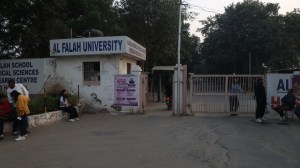Let146;s talk ROEs
8226; This refers to your editorial 8216;Rules of Engagement8217; IE, February 16. The army ...

8226; This refers to your editorial 8216;Rules of Engagement8217; IE, February 16. The army establishment has seldom grasped the significance of this vital subject. In the 1965 war, a joint secretary issued ROEs to the navy to operate below the latitude of Ohka, inhibiting the navy. In the 1971 war the chiefs framed aggressive ROEs. That is why the IAF Hunters hit Karachi on December 4 morning and the navy sank three ships off Karachi the same night. In OP Pawan, ROEs were said to have led to the death of some 1300 soldiers at the LTTE8217;s hands, while the navy never lost one though they too operated ashore. Ships cannot operate without clear cut ROEs, but powerful armies can bumble along. In the 1999 Kargil war, it was possibly the lack of ROEs on use of air power between May 4 and 23 1999 that saw so many army deaths. In Kashmir since the unified commander is the chief minister and Delhi controls policy, one wonders who debates ROEs. Your proposal to punish the hapless jawans for action they took with the porters, if due to lack of ROEs, would be preposterous for army morale.
8212; Ranjit B. Rai New Delhi
Congratulations
8226; My congratulations to editor Shekhar Gupta and the Indian Express team on being selected for the first International Press Institute Award for Outstanding Journalism. I also thank all those at The Indian Express who have transformed the newspaper into a powerful instrument for mobilising opinion on issues that engage the citizens of India.
Hitherto most journalistic exposes have been based on leaks provided by rival politicians and disgruntled bureaucrats. Very few newspapers in India invest time, able staff and money on real investigative journalism. Your reporters and investigators do thorough homework. More importantly, you follow up on issues in a consistent and courageous manner. The steadfastness with which you kept the heat on in the Satyendra Dubey murder case, the Gujarat massacres and the Sarita-Mahesh murders among others, and have catalysed citizens to express their concern, is a morale booster for those of us who despair at the short attention-span of our media. Newspaper exposes have hitherto often been aimed at dislodging this or that person out of power.
By contrast, The Indian Express of today remains focused on important issues and systemic reform rather than personalities. This is an important reason why your reports evoke such powerful responses. You have helped build a much larger constituency for governance reforms in India. You don8217;t hesitate to take on politically unfashionable causes. Finally, your front page and the bulk of your paper provide news with substance. Nor have you resorted to cheap gimmicks to increase your circulation. I pray and hope you obtain the resources to grow and take on even more ambitious investigations and campaigns that help create a clean and responsive system of governance.
8212; Madhu Kishwar Editor, Manushi New Delhi
Not Ayodhya
8226; We feel concerned over the raking up of the Ayodhya issue by the BJP once again. We see double speak. When BJP leaders visit Ayodhya, they start talking about the temple. Back in Delhi, the idea of NDA makes them silent. We expect Vajpayee, a man of vision, to rise above petty sangh parivar politics and take the development card to its logical conclusion by extending its scope to include the generation of gainful jobs for highly qualified unemployed youth. We wish for our work places to become temples.
8212; K.L. Batra On e-mail
- 01
- 02
- 03
- 04
- 05






























